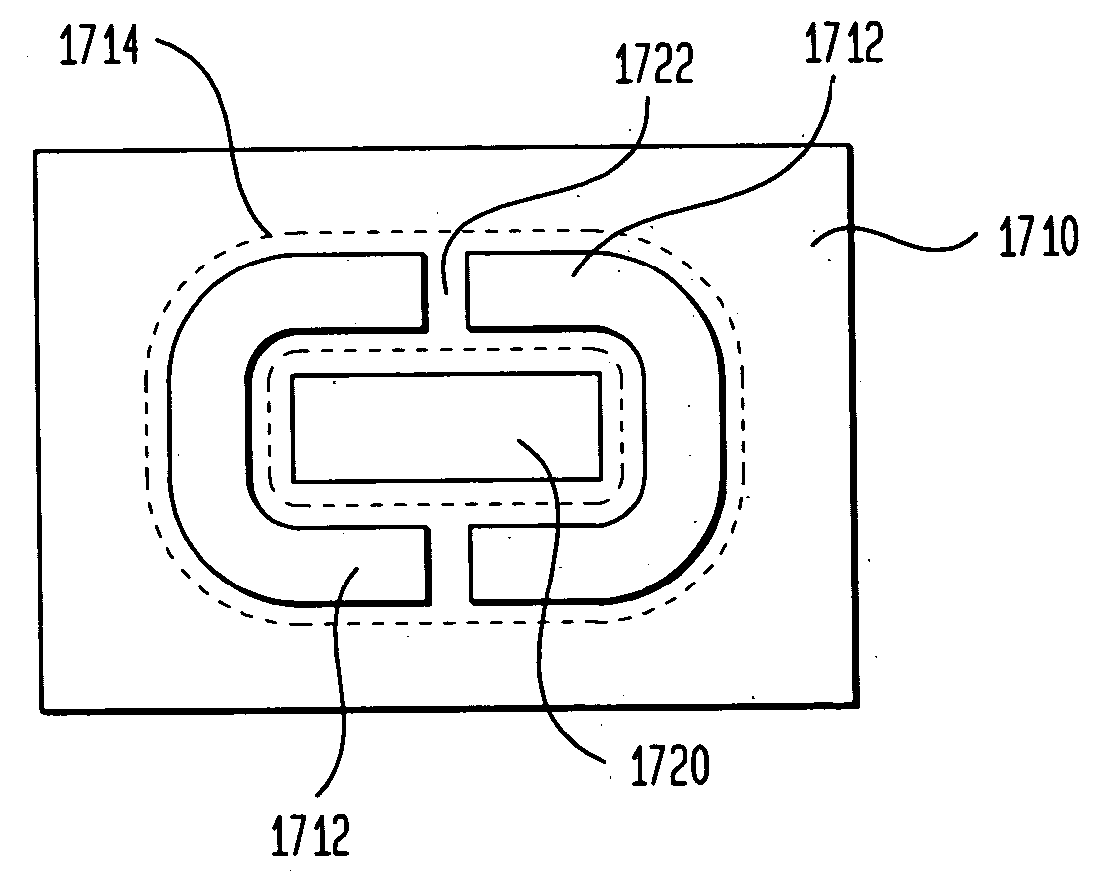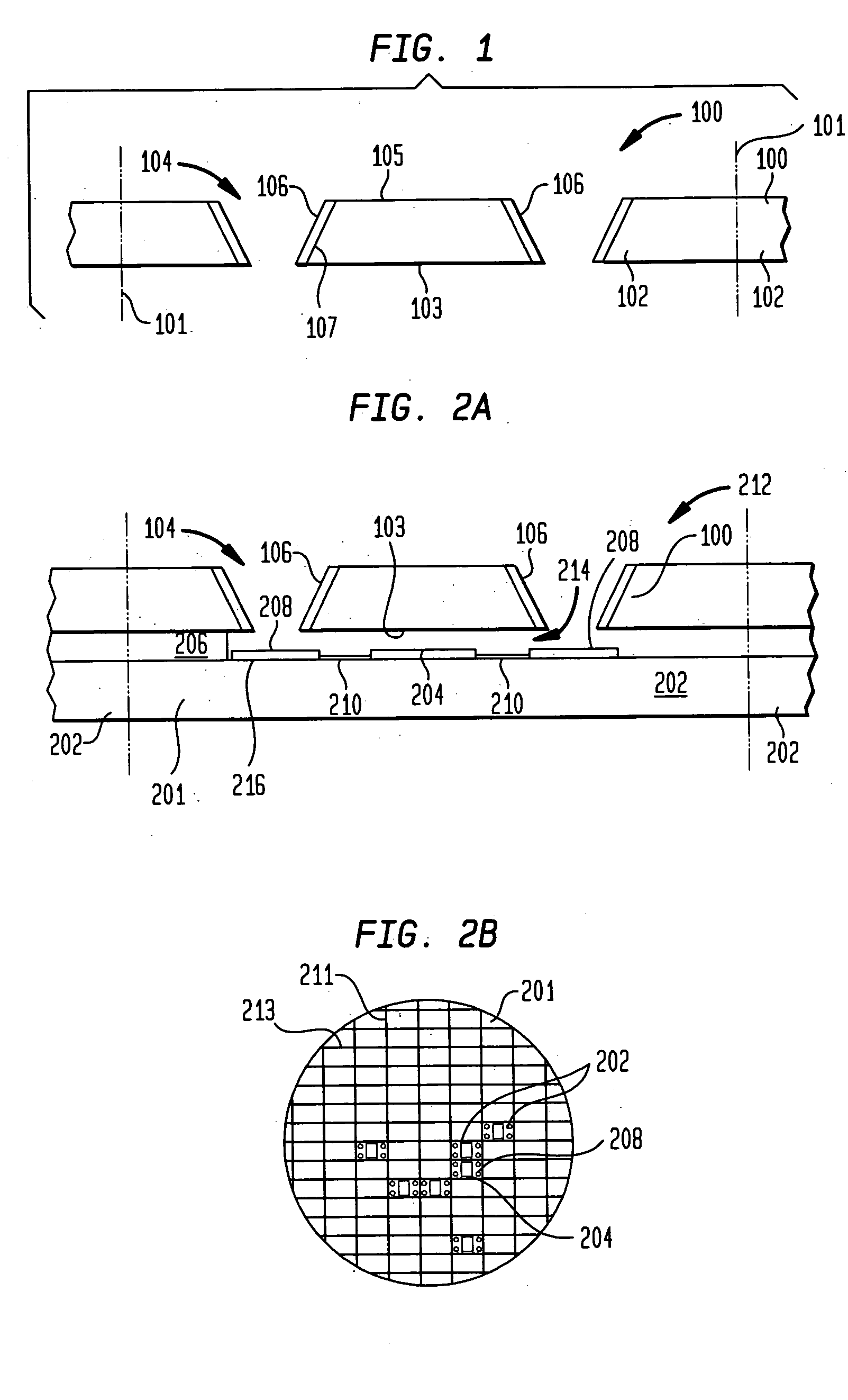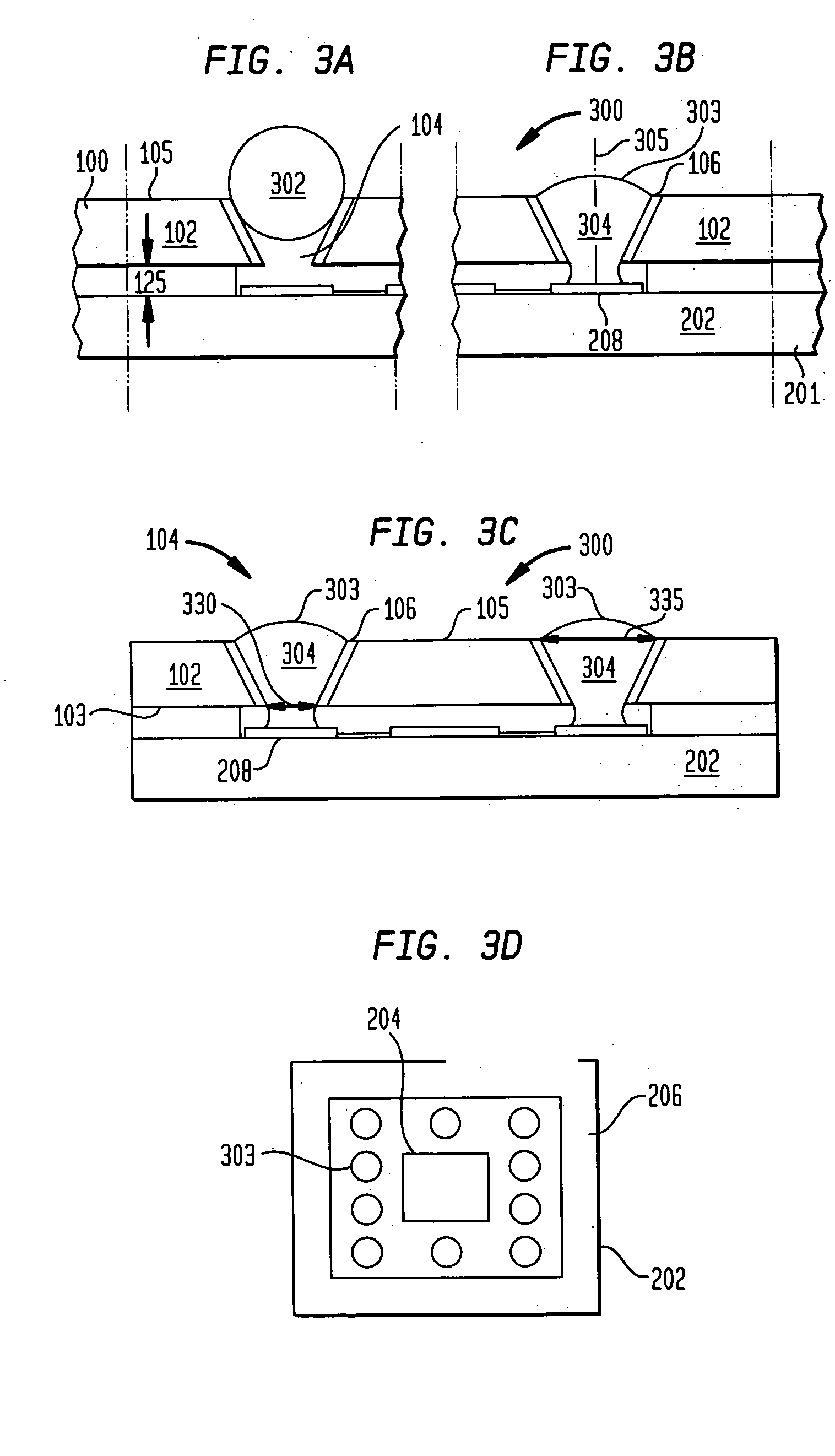Structure and method of making sealed capped chips
a technology of sealed caps and chips, applied in the field of microelectronic packaging, can solve the problems of requiring a relatively complex series of steps for forming terminals on caps, requiring a relatively complex series of steps, and providing terminals for mems devices
- Summary
- Abstract
- Description
- Claims
- Application Information
AI Technical Summary
Benefits of technology
Problems solved by technology
Method used
Image
Examples
Embodiment Construction
[0152]FIGS. 1-3D illustrated a capped chip and stages in a method for fabricating a capped chip according to an embodiment of the invention. In particular, FIG. 3C is a sectional view illustrating a capped chip 200 and FIG. 3D is a plan view illustrating the interconnects and the seal provided on the surface of a chip included in the capped chip.
[0153] Particular types of devices, such as SAW devices and MEMs need to be sealed hermetically in order to function appropriately over the life of the device. For many silicon semiconductor devices, a package is considered to be hermitic if it has a leak rate of helium below 1×10−8 Pa m3 / sec. Other devices such as electro-optical devices do not require hermeticity, but nevertheless are best packaged under a protective lid, e.g., one that is optically transmissive, as a way of preventing particles from reaching a surface of the electro-optic device.
[0154] In a method of forming the capped chips, a plurality of caps 102, e.g., as contained ...
PUM
 Login to View More
Login to View More Abstract
Description
Claims
Application Information
 Login to View More
Login to View More - R&D
- Intellectual Property
- Life Sciences
- Materials
- Tech Scout
- Unparalleled Data Quality
- Higher Quality Content
- 60% Fewer Hallucinations
Browse by: Latest US Patents, China's latest patents, Technical Efficacy Thesaurus, Application Domain, Technology Topic, Popular Technical Reports.
© 2025 PatSnap. All rights reserved.Legal|Privacy policy|Modern Slavery Act Transparency Statement|Sitemap|About US| Contact US: help@patsnap.com



